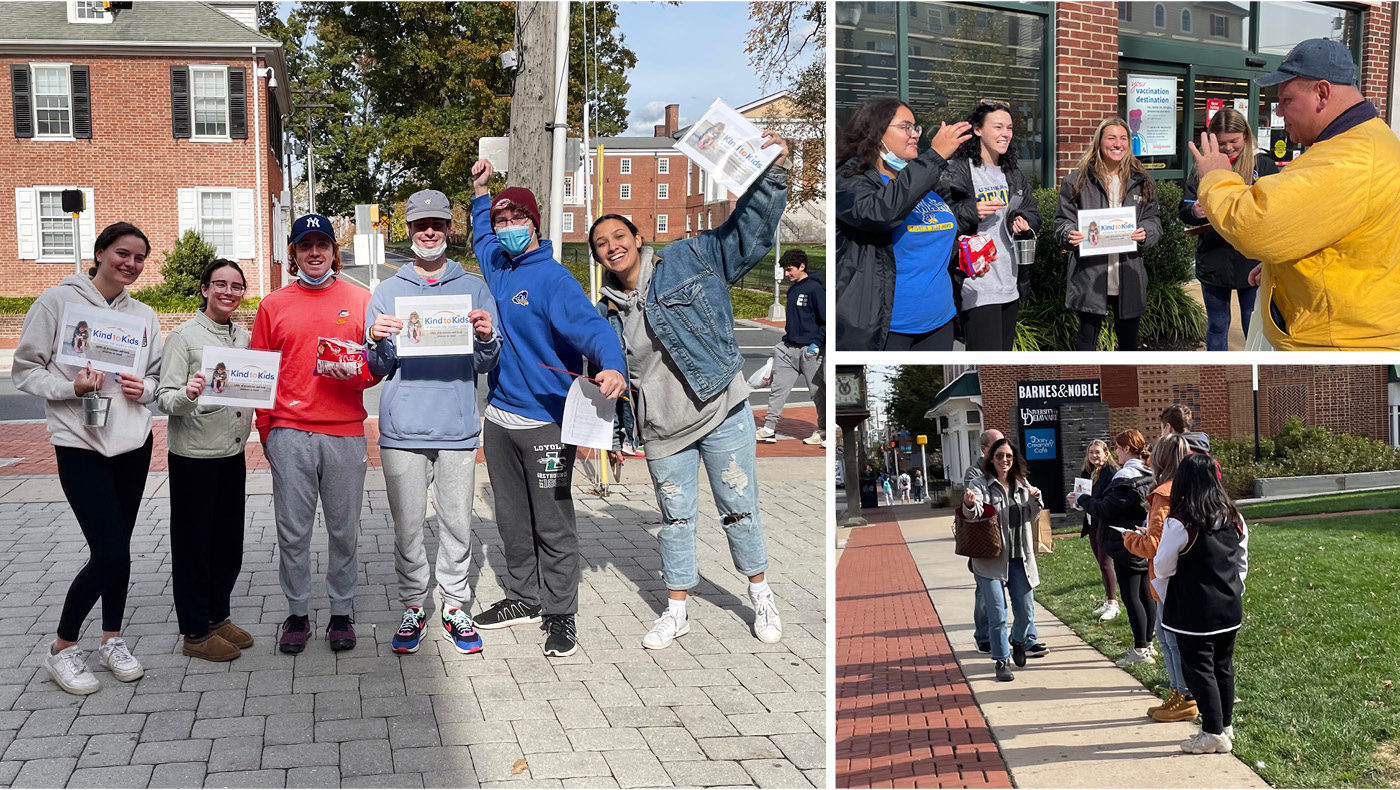Persuasion is a foundational piece of the marketer’s toolkit, learning how to influence others to achieve your goal. In one marketing course at the University of Delaware’s Alfred Lerner College of Business and Economics, students took their newly learned persuasive techniques to the streets of Newark, Delaware this fall. Instead of using these skills for their own benefit, they used them to raise funds for charity.
This fall, 82 Blue Hens raised $638 in Associate Professor of Marketing Michal Herzenstein’s Introduction to Marketing, BUAD301 course, the most money that this project has yielded to date. Students tested four different persuasive techniques for raising money for a charitable cause during one class period. Herzenstein then matched the amount, bringing the total class donation to $1,200 for Kind to Kids, a local foundation that supports children in foster care.
Herzenstein explained the four persuasion techniques the students tested:
1. Foot in the Door
This is based on the principle of consistency and appearing consistent in thoughts and actions. First, the persuader asks for a small amount of money and, if the recipient says “yes”, then asks for a larger donation. To test how effective this method is, one should compare how many people say “yes” to the larger request with and without first asking for the smaller amount.
2. Door in the Face
The students asked for a large donation and, if the person said “no”, they then asked for a smaller amount. The name of this concept comes from the idea that if a persuader starts with an unreasonable request, it is expected that the recipient will say no and metaphorically slam the door in the persuader’s face. The persuader then makes a concession, amending to a more reasonable request, which may be more difficult to deny.
3. Reciprocity
Students gave away candy and, in return, asked for a donation. This technique builds upon the idea that if you do something for or give something to someone, then they feel the need to return the favor.
4. Wild Card
Students had the opportunity to choose another technique from the course to use for their fourth attempt. According to Herzenstein, many used flattery (complementing potential donors), while others used guilt (saying the money will go to buy Christmas presents for children who otherwise wouldn’t get anything.)
Which technique yielded the best results? Herzenstein noted that, “The candy worked best, then foot in the door. Most donations actually came from passersby who were not students–like parents on tour and other adults during lunchtime on Main Street.
“One cool thing to note about the parents on tour: they donated and, in exchange they got to ask questions about UD, my class and this assignment,” Herzenstein added. “So that’s also reciprocity.”
These persuasive lessons have proven to be valuable to students beyond this one project and class. One of Herzenstein’s students, Julia Burnbaum, UD Class of 2023 psychology major with a minor in business administration, is hoping to put her new persuasive skills to use in her volunteer work as a representative for the annual UDance fundraiser benefiting the Andrew McDonough B+ Foundation.
“I loved today’s class! So excited to use these techniques,” Burnbaum shared. “One of our [UDance] fundraising techniques is something we call ‘canning’ and it’s the same fundraising as we did today. [Representatives] are always asking for different ways to ‘can’ besides saying ‘donate for the kids (FTK)’ which is our usual approach. I’m going to share with the other representatives some of the techniques we used today.”




